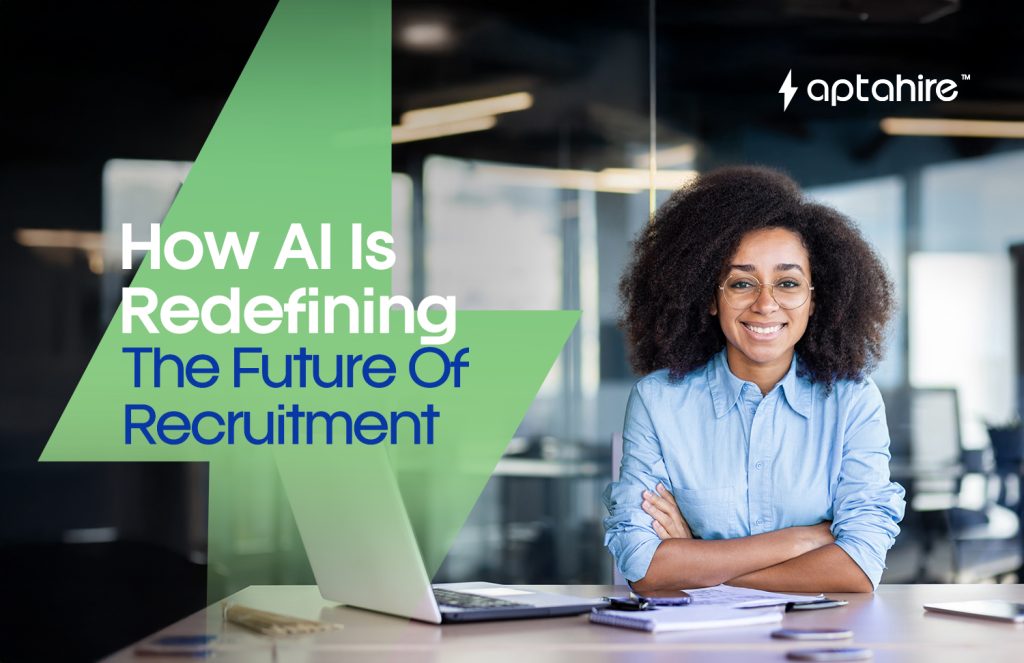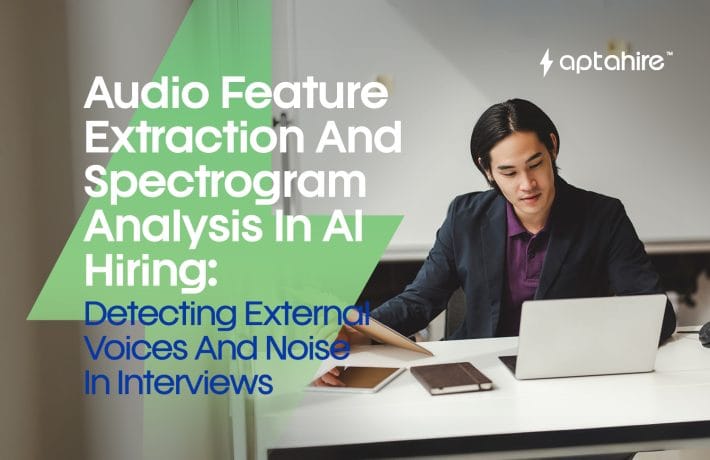How AI is Redefining the Future of Recruitment

Recruitment is no longer what it used to be.
Gone are the days when hiring meant sifting through towering piles of résumés, manually scheduling interviews, and relying on gut feelings to find the “perfect fit.” In today’s digital-first world, Artificial Intelligence (AI) is not just supporting recruitment, it’s transforming it from the ground up.
AI is redefining recruitment in ways that are nuanced, intelligent, and, frankly, long overdue.
This isn’t just about automation, it’s about amplification. Amplifying our ability to understand, analyze, and connect with talent. It’s about using data, machine learning, and cognitive technologies to evolve the human resource function into a high-precision, high-efficiency system.
So, what does this future of recruitment really look like with AI in the driver’s seat?
Let’s explore.
1. Beyond the Résumé: AI’s Evolution of Talent Screening
Let’s be honest, résumés are static, limited, and often don’t tell the full story. Candidates know how to tailor their CVs to beat the bots. But AI? It’s learning how to see beyond bullet points.
Modern AI recruitment tools now analyze a candidate’s online footprint, GitHub contributions, LinkedIn activity, writing samples, and even public code repositories or design portfolios. They assess both hard skills and soft signals like communication style, growth trajectory, and leadership potential.
In other words, AI is helping recruiters make decisions based not just on what candidates say they can do, but on what they’ve actually done.
Conversation starter:
Imagine telling a hiring manager, “This candidate is a rising thought leader in your niche market based on their social commentary, open-source contributions, and peer endorsements.”
That’s not fiction. That’s the AI advantage.
2. Intelligent Job Matching: Not Just Finding, But Fitting
Most recruitment processes are plagued by mismatches, not because the talent isn’t out there, but because it’s difficult to connect the right talent with the right role at the right time.
AI now enables predictive job matching that’s based on far more than just keyword relevance. Sophisticated algorithms take into account:
- Career progression patterns
- Cultural alignment
- Compensation expectations
- Learning agility
- Probable tenure
And yes, some tools even predict the likelihood of a candidate accepting an offer based on market trends and behavioral history.
AI is solving not just for fit, but for future potential.
3. The Rise of Conversational AI: Interviewing at Scale
Recruiters are overwhelmed.
A job post goes live, and within hours, hundreds of applications flood in. Even if only 10% are qualified, that’s still dozens of conversations that must be had, quickly.
Enter AI-powered interviewers, natural language processing bots that conduct initial screening interviews via text or voice. These bots don’t just ask canned questions, they can dig deeper, adapting in real time based on responses, tone, and language.
For example:
“Tell me about a time you handled conflict.”
If the response lacks specifics, the AI might follow up with:
“What was the outcome of that situation?”
These systems ensure consistency, fairness, and efficiency, every candidate gets a structured evaluation, and recruiters get transcripts with sentiment analysis, red flags, and personality trait predictions.
Did You Know?
Companies using AI interviewing tools report a 60-70% reduction in screening time and a 30% improvement in hiring quality. That’s not just efficiency, it’s evolution.
4. Emotional Intelligence Goes Digital: Analyzing Body Language & Tone
One of the more exciting (and perhaps controversial) frontiers of AI recruitment is emotion recognition and micro-expression analysis.
Tools now exist that can evaluate:
- Eye movement and contact
- Facial muscle responses
- Tone, pitch, and pace of voice
- Fidgeting and pauses
All these indicators help AI assess confidence, stress, honesty, and enthusiasm levels, especially useful in remote or asynchronous video interviews.
While this raises questions around bias and ethics (which we’ll address later), it’s a significant leap in understanding candidates as whole individuals, not just as answers on a screen.
5. AI for DEI: Diversity, Equity & Inclusion Gains Real Momentum
Let’s face it: humans are biased. Even when we mean well.
AI—when trained correctly, can reduce unconscious bias in hiring by:
- Blinding demographics during screening
- Using gender-neutral language in job descriptions
- Creating inclusive candidate pipelines based on skill, not background
- Monitoring diversity metrics in real time across hiring funnels
And because AI is always “watching,” it can flag patterns of bias we might miss. For instance: “80% of your shortlisted candidates come from the same alma mater or ethnic background. Consider expanding your criteria.”
This helps organizations walk the talk on inclusion, systematically and sustainably.
6. Personalized Candidate Experiences, at Scale
Think about this:
We personalize emails, e-commerce suggestions, and Netflix shows, but candidate experiences? Not so much.
AI is changing that.
With smart chatbots, automated nudges, and predictive feedback loops, candidates now receive:
- Personalized job alerts
- Real-time application updates
- Custom follow-ups based on their journey
- AI-generated preparation tips before interviews
It’s the difference between:
“Thanks for applying. We’ll get back to you.”
and
“Hey Alex, we loved your portfolio! Our design team will review it within 3 days. In the meantime, here’s a walkthrough of our interview process.”
Personalization isn’t a luxury anymore, it’s an expectation. AI makes it manageable, even at enterprise scale.
7. Internal Hiring, Succession, and Upskilling with AI Insights
Recruitment isn’t just about hiring new people, it’s also about identifying and nurturing internal talent.
AI-driven talent intelligence platforms now help HR teams:
- Identify hidden skillsets in current employees
- Suggest career paths and mentorship opportunities
- Flag potential successors for leadership roles
- Recommend training programs based on industry demand
Think of it as an AI-powered internal LinkedIn that continuously maps potential, ambition, and growth paths across your workforce.
The result?
Higher retention. Lower hiring costs. More motivated employees.
8. Real-time Hiring Analytics & Optimization
What gets measured gets managed.
Modern recruitment AI platforms come with dashboards that track KPIs like:
- Cost per hire
- Time to fill
- Candidate satisfaction
- Source performance
- Diversity ratios
But the real kicker? AI doesn’t just report. It recommends.
- “Your best hires come from X platform, allocate more budget there.”
- “Candidates drop off most frequently at stage 3, revise your task assessment.”
- “Rejection feedback suggests the JD is confusing, simplify it.”
Hiring decisions now come with data-driven clarity.
9. Ethical Questions: Can AI Truly Be Fair?
Let’s address the elephant in the server room.
AI is only as unbiased as the data it’s trained on. If historical data reflects biased hiring (which it often does), AI can replicate or even amplify those issues.
Examples:
- Penalizing career gaps (often due to parenting or caregiving)
- Favoring certain accents or linguistic styles
- Disqualifying candidates from underrepresented groups due to skewed datasets
That’s why ethical AI practices are crucial:
- Regular audits of algorithms
- Diverse training data
- Human oversight in final decisions
- Transparent communication with candidates
AI should augment, not replace, human judgment.
10. The Future Is Not AI vs Humans; It’s AI + Humans
We must stop seeing AI as a recruiter’s replacement. Instead, it’s their co-pilot.
AI handles the high-volume, repetitive, and analytical work, freeing up human recruiters to focus on empathy, storytelling, negotiation, and strategy.
The future recruiter isn’t just someone who fills roles. They are:
- Talent strategists
- Culture curators
- DEI champions
- Tech-savvy analysts
AI simply gives them superpowers.
In Closing: The Hiring Renaissance Has Begun
AI isn’t just changing recruitment, it’s redefining what hiring means.
From smarter sourcing to fairer evaluations, from real-time insights to truly personalized experiences, we are in the middle of a hiring renaissance. And like any renaissance, it’s not without its debates, disruptions, and growing pains.
But one thing is clear:
The companies that embrace AI-powered hiring, responsibly, ethically, and creatively, will attract the best talent of tomorrow.
And in a world where talent is the true competitive advantage, that’s not just HR’s job, it’s every company’s future.
FAQs
1. How is AI different from traditional recruitment tools like ATS?
While an ATS (Applicant Tracking System) mainly focuses on organizing and filtering résumés based on keywords, AI goes further by learning patterns, predicting candidate success, analyzing behavior, and even conducting initial interviews. AI doesn’t just track, it intelligently evaluates and optimizes the hiring process end-to-end.
2. Can AI in recruitment really reduce bias and improve diversity?
Yes, when properly designed and audited, AI can help reduce unconscious human bias by blinding demographic information, using inclusive language, and ensuring consistent candidate evaluations. However, if the data it’s trained on is biased, it can replicate or even amplify discrimination, so ongoing ethical oversight is crucial.
3. What parts of the hiring process can AI automate or enhance?
AI can support or automate many stages, including:
- Resume screening
- Job matching
- Candidate engagement (via chatbots)
- Interview scheduling
- Video interview assessments (facial, voice, tone analysis)
- Predictive analytics (e.g., likelihood to accept an offer)
This allows recruiters to focus on strategic, human-driven tasks.
4. Will AI replace human recruiters in the future?
No. AI is a tool, not a replacement. It enhances efficiency and decision-making but lacks emotional intelligence, cultural understanding, and strategic thinking. Human recruiters will always be needed for relationship-building, storytelling, negotiation, and final decision-making.
5. How does AI personalize the candidate experience?
AI personalizes job alerts, automates tailored follow-ups, provides feedback, and can even offer customized interview prep tips. This helps candidates feel seen, informed, and valued, leading to better engagement and stronger employer branding.
6. Is AI hiring only for big enterprises or can small businesses benefit too?
AI-powered recruitment tools are now accessible to SMBs as well. Many platforms offer scalable pricing, automation features for lean HR teams, and integrations with existing tools. Even startups can benefit from faster, smarter hiring using AI.
7. How accurate is AI in predicting candidate success?
AI can be highly accurate when trained on robust, diverse data sets. It looks at behavioral patterns, learning agility, previous performance indicators, and more to predict role fit, retention probability, and success potential. But it’s not infallible, human judgment should always guide the final call.
8. What are the risks or ethical concerns with AI in recruitment?
Key concerns include:
- Algorithmic bias
- Lack of transparency
- Privacy violations
- Over-reliance on automation
To mitigate this, companies must ensure ethical AI design, maintain human oversight, and offer candidates transparency about how their data is used and analyzed.

